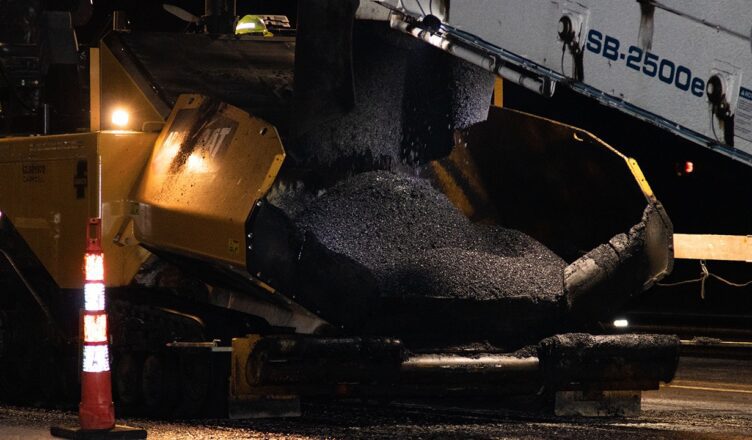The Missouri Department of Transportation and the University of Missouri’s Mizzou Asphalt Pavement and Innovation Lab have partnered to make more sustainable road pavements. The collaboration will now include a real-world test using recycled materials and plastic waste along a portion of Interstate 155 in the southeastern portion of the state called the Bootheel.
The goal is to test a new formulation that the university has created to incorporate more recycled materials, including plastics, into the tar mixture used for asphalt. By increasing the sustainability of asphalt mixes, the roadway mixture would both reduce the amount of landfill trash and and amount of fresh petroleum used to make the mix.
The previous test bed project, a section of Stadium Boulevard in Columbia, Missouri, did well. The goal here is to test the same material under highway speed and use conditions. The research laboratory is also adding to the number of materials being recycled, going from four to nine. This includes three types of polyethylene (used in grocery bags), ground tire rubber, and other types of petroleum-based recyclables.
“We don’t just live in the laboratory. In the field of transportation material research, we need to see how all the various materials used to construct a road—the rock, the asphalt and the recycled materials — behave in the real world and gel together to build a road. Asphalt is liquified with heat, and when you put an additive in like a plastic or rubber material, you must get everything to bond together with good adhesion. But we’re only going to know if that happens successfully when we produce it on a full-scale level and then expose it to elements, such as different weather conditions and heavy traffic.” –Bill Buttlar, director of the Mizzou Asphalt Pavement and Innovation Lab
The add-in items can be used during the dry process of the mix-making for asphalt. Meaning they can be added in before the asphalt is heated and applied to the roadway. This allows easier addition of various materials at the source rather than adding them in at the project site. Saving time and transportation costs.
“The form, shape and size of the plastics bring different challenges in how the material flows, how it behaves and how it mixes. So, we did extensive small-scale testing for almost an entire year before we moved to a larger scale out in the field with contractors.” –Punya Rath, asst. research professor in Department of Civil and Environmental Engineering, Missouri University
The University of Missouri uses a special mobile research lab to test mixtures in the field both during application and in follow-up studies of the results. It also allows measurements needed to stay within Environmental Protection Agency limits for pollution, byproducts, and spills.
This article originally published on EVmeme.com.







